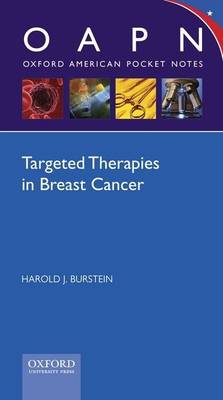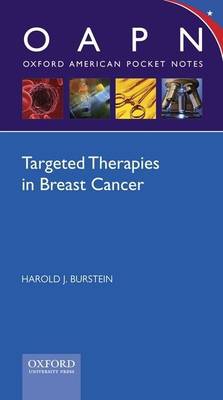
Door een staking bij bpost kan je online bestelling op dit moment iets langer onderweg zijn dan voorzien. Dringend iets nodig? Onze winkels ontvangen jou met open armen!
- Afhalen na 1 uur in een winkel met voorraad
- Gratis thuislevering in België vanaf € 30
- Ruim aanbod met 7 miljoen producten
Door een staking bij bpost kan je online bestelling op dit moment iets langer onderweg zijn dan voorzien. Dringend iets nodig? Onze winkels ontvangen jou met open armen!
- Afhalen na 1 uur in een winkel met voorraad
- Gratis thuislevering in België vanaf € 30
- Ruim aanbod met 7 miljoen producten
Zoeken
Omschrijving
The development of monoclonal antibodies and other inhibitors of specific molecules, fully utilizing the insights learned from molecular techniques such as comparative microarrays and protein expression patterns, has led to the development and FDA approval of several agents for the treatment of breast cancer, such as trastuzamab (Herceptin, targeting HER-2 positive tumors) and lapatinib (Tykerb, targeting tumors with mutated/overexpressed EGFR 1 and 2). Other agents specifically targeting the estrogen receptor, the aromatose pathway and microtubule dynamics, fulvestrant (Faslodex, targeting the ER specifically in breast cancer cells), and letrozole (Femara, targeting the aromatose pathway), raloxifene (Evista, a selective estrogen receptor modulator), ixabepilone (Ixempra, a ?-tubulin inhibitor) have also been approved for various stages and specific settings in breast cancer treatment. The current challenges in the field include further targeting of these agents as part of
specific strategies for each patient (biomarker testing, pharmacogenetics, etc.), as well as follow-up and management of adverse events. Part of the Oxford American Pocket Notes series, this volume provides clinicians with the ultra-concise, evidence-based, current information and insight on implementing the latest treatment strategies, including targeted agents, into clinical practice. This portable volume is intended to provide quick, easily accessible guidance for the practicing oncologist, oncology care staff (including nurses and PAs) as well as the primary care practitioner, on the mechanism of action, dosing and administration and adverse effects of the approved targeted agents.
specific strategies for each patient (biomarker testing, pharmacogenetics, etc.), as well as follow-up and management of adverse events. Part of the Oxford American Pocket Notes series, this volume provides clinicians with the ultra-concise, evidence-based, current information and insight on implementing the latest treatment strategies, including targeted agents, into clinical practice. This portable volume is intended to provide quick, easily accessible guidance for the practicing oncologist, oncology care staff (including nurses and PAs) as well as the primary care practitioner, on the mechanism of action, dosing and administration and adverse effects of the approved targeted agents.
Specificaties
Betrokkenen
- Auteur(s):
- Uitgeverij:
Inhoud
- Aantal bladzijden:
- 64
- Taal:
- Engels
- Reeks:
Eigenschappen
- Productcode (EAN):
- 9780199735679
- Verschijningsdatum:
- 17/08/2011
- Uitvoering:
- Paperback
- Formaat:
- Trade paperback (VS)
- Afmetingen:
- 170 mm x 94 mm
- Gewicht:
- 48 g

Alleen bij Standaard Boekhandel
+ 77 punten op je klantenkaart van Standaard Boekhandel
Beoordelingen
We publiceren alleen reviews die voldoen aan de voorwaarden voor reviews. Bekijk onze voorwaarden voor reviews.











